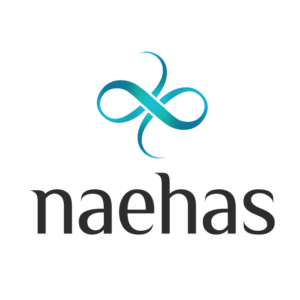Monitoring the Regulatory Landscape
The signs that compliance is around the corner seem clearer. In a December 16 notice, the Consumer Financial Protection Bureau (CFPB) reported it is turning its attention to this as-yet unregulated segment (“Consumer Financial Protection Bureau Opens Inquiry into “Buy Now, Pay Later” Credit). According to a Reuters article: “The U.S. Consumer Financial Protection Bureau (CFPB) on Thursday asked five ‘buy-now, pay-later’ companies for information on their business practices, amid concerns that the financing products are putting consumers at risk.” The December 16 article continued: “The agency issued the order…in the wake of a boom in ‘buy-now, pay-later’ services, which allow consumers to split purchase payments into installments, driven in part by online shopping growth during the coronavirus pandemic. The CFPB said it is concerned about ‘accumulating debt, regulatory arbitrage, and data harvesting’ and is seeking data on the risks and benefits of the products.” The main concerns encompass a range of perhaps as-yet unrealized threats to consumers: impact on credit scores, installment payment plans, credit cards with interest-free or low-interest, interest rates, installment loans, payment methods, whether customers can pay on time, and how short term gains impact bank accounts and credit scores long term.
Are regulations on the way? How? When? While no one is predicting how long the process will take, it seems certain. This understandably concerns companies who have not had to manage disclosures, now facing a steep learning curve as they prepare to meet the complexities of regulatory compliance. That’s an understatement.
We recently tapped the expertise of our top team members. Their collective insights follow.
The main concerns encompass a range of perhaps as-yet unrealized threats to consumers: impact on credit scores, installment payment plans, credit cards with interest-free or low-interest, interest rates, installment loans, payment methods, whether customers can pay on time, and how short term gains impact bank accounts and credit scores long term.
Are regulations on the way? How? When? While no one is predicting how long the process will take, it seems certain. This understandably concerns companies who have not had to manage disclosures, now facing a steep learning curve as they prepare to meet the complexities of regulatory compliance. That’s an understatement.
We recently tapped the expertise of our top team members. Their collective insights follow.Trusted partnerships and proven case studies help finserv martech teams gain a competitive edge by staying ahead of the learning curve to drive growth. Finding the right fit matters.
To that end, here are ways those in the Buy Now, Pay Later category of financial services can best prepare for what’s next.Regulatory Impact and Use Cases
The regulations for BNPL firms will likely impact four common use cases:
- Marketing disclosures
- Customer agreements
- Regulated content
- Welcome kits
Automating disclosures, utilizing the intelligent review process, like that offered by Naehas, to streamline regulated content approval processes, can offer vital support for companies new to this complex compliance environment. The benefits are both compelling and cost effective, and the ROI is immense. Especially for firms facing the possibility of hefty fines, preparing to identify and partner with platform technology teams with deep industry experience is a critical cog in the wheel of disclosure management and continued growth.
What BNPLs Need to Know Now
Improving, if not newly-establishing, a Disclosure Management and Ad Review Process, is a top priority. This serves multiple, meaningful purposes. First, it demonstrates the ability to self-regulate in a way that may ease concerns of regulators and minimize a pendulum swing. Secondly, it readies the regulatory compliance teams in a way that offers a competitive edge to those who may not have taken risk management seriously enough to bolster their efforts.
 Getting the correct and compliant disclosure connected to the right client communication is a challenge that can create market conduct risk and postpone revenue when review cycles take too long. Disclosure Management platforms, like the one offered by Naehas, use a unique content block repository and Artificial Intelligence to accelerate approvals across channels while supporting efficient compliance approvals.
Getting the correct and compliant disclosure connected to the right client communication is a challenge that can create market conduct risk and postpone revenue when review cycles take too long. Disclosure Management platforms, like the one offered by Naehas, use a unique content block repository and Artificial Intelligence to accelerate approvals across channels while supporting efficient compliance approvals.
“Having operated in an as-yet regulated financial segment, companies in the Buy Now, Pay Later space are struggling to prepare for government regulations and complex oversight,” according to (Brent Plow, National Director at Naehas. He reports that the company is fielding inquiries from those anxious about regulatory compliance. Managing risk is fast becoming a top priority for these firms. The new To Do’s of automating marketing for disclosure management, reviewing newly-regulated marketing collateral, creating efficient processes with auditability and traceability, these are fairly new concepts for them,” added Plow, noting, “We’re encouraging these BNPL financial services firms to start readying for regulatory compliance now.”
Establishing Regulatory Readiness
Seeking and finding supportive, expert resources, or failing to, can make or break a business. Knowing best practices relating to regulatory compliance is critical. But who’s job is it? How and what are they supposed to be looking for? Which teams are most likely to be impacted?
Within these BNPL organizations, multiple divisions across the enterprise will be affected by soon-to-be-developed regulations. Those directly affected include: Marketing strategy and execution; Operations; Digital Services; IT; Legal; Compliance.
Identifying solutions partners, and adopting platforms purposely-built for highly-regulated industries, is imperative. Those with in-depth knowledge of compliance rules, and how regulations impact each internal team, are best-positioned to help BNPLs avoid the pitfalls, and fines, common to those struggling to go it alone.
Benefits of Top Disclosure Management Platforms
- Less errors: Decrease errors by automating common compliance and brand reviews so the compliance team can focus on the nuanced issues
- Increased revenue: Support product and marketing teams ability to grow revenue by shortening time to market
- Improved auditability: Less errors and tracking changes throughout the process makes audit reviews fast and easy.
As Buy Now, Pay Later companies come into the evolving compliance arena, adopting Disclosure Management Platform Technology will provide critical benefits. Helping marketing technology teams meet these new challenges is why Naehas has established a robust Resource Center. With solution briefs, case studies, blogs, webinars, those needing support can find it. Consider this resourceful Buyer’s Guide, with checklists of requirements to consider in the vendor selection process. Knowing what to ask is as important as the answers.
In future features, we’ll address the specific platform solutions helping financial service companies manage disclosure management and regulatory compliance moving forward.






